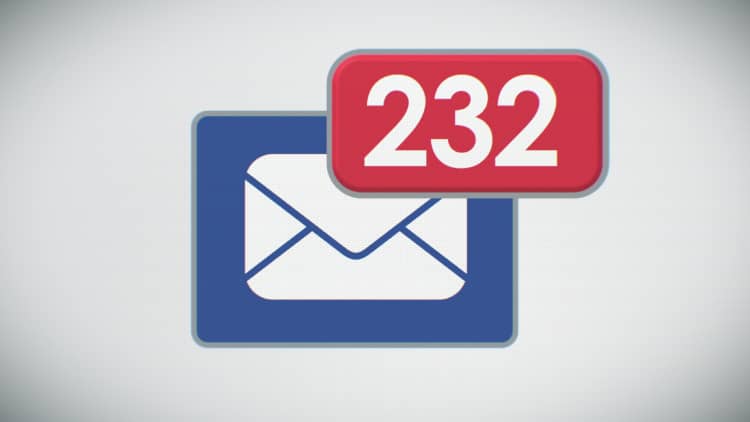According to a Reuters survey, workers spend 6.3 hours a day checking email, but perfecting email communication is far from easy.
"There are so many mistakes you can make," says John Foreman, VP of product management and former chief data scientist at MailChimp. "One of the mistakes that people make is that they find themselves almost apologizing for using email."
Even though of the modern workplace, workers often come off as weak and indirect over electronic communications, says Foreman. "Kind of like, 'I don't want to bother you.'"
When you use this apologetic tone, you make yourself sound less professional, less confident and less convincing.
Foreman says that professionals should not feel guilty for . "Don't be afraid to reach out to them and communicate to them over that channel," he explains. "Just because people might not want to get an email from someone else, doesn't mean that they don't want to get an email from you."
In order to combat that sheepishness, Foreman says that workers can follow a simple rule — email with confidence.
"With professional communication, communicate directly with the people you need to talk to," he says.
In a big office setting it can be intimidating to reach out to people you have never met, but by following a bureaucratic chain of command, you may be wasting everyone's time.

"Oftentimes instead of directly approaching the person they want to talk with, professionals will stick within their own team, talk to their buddies and let their message take like a horseshoe track," he explains. "If you have something to say, reach out to that person. It works for businesses, and it works for individuals."
But communicating directly and unabashedly does not mean that you should send an email for every thought that goes through your head, admits Foreman. "I would discourage anyone from sending an email — or really communicating in any way — if they don't have something to say."
If you have a question for your boss, an idea for a way to collaborate with a coworker or an exciting announcement for your business, send that email loud and proud.
"Those are things that you have to say," Foreman emphasizes, "so don't be afraid to reach out with them."
Like this story? Like CNBC Make It on Facebook
Don't miss:
This is the best time to send an email
How to write the perfect post-interview email
Before you send that email, ask yourself this



